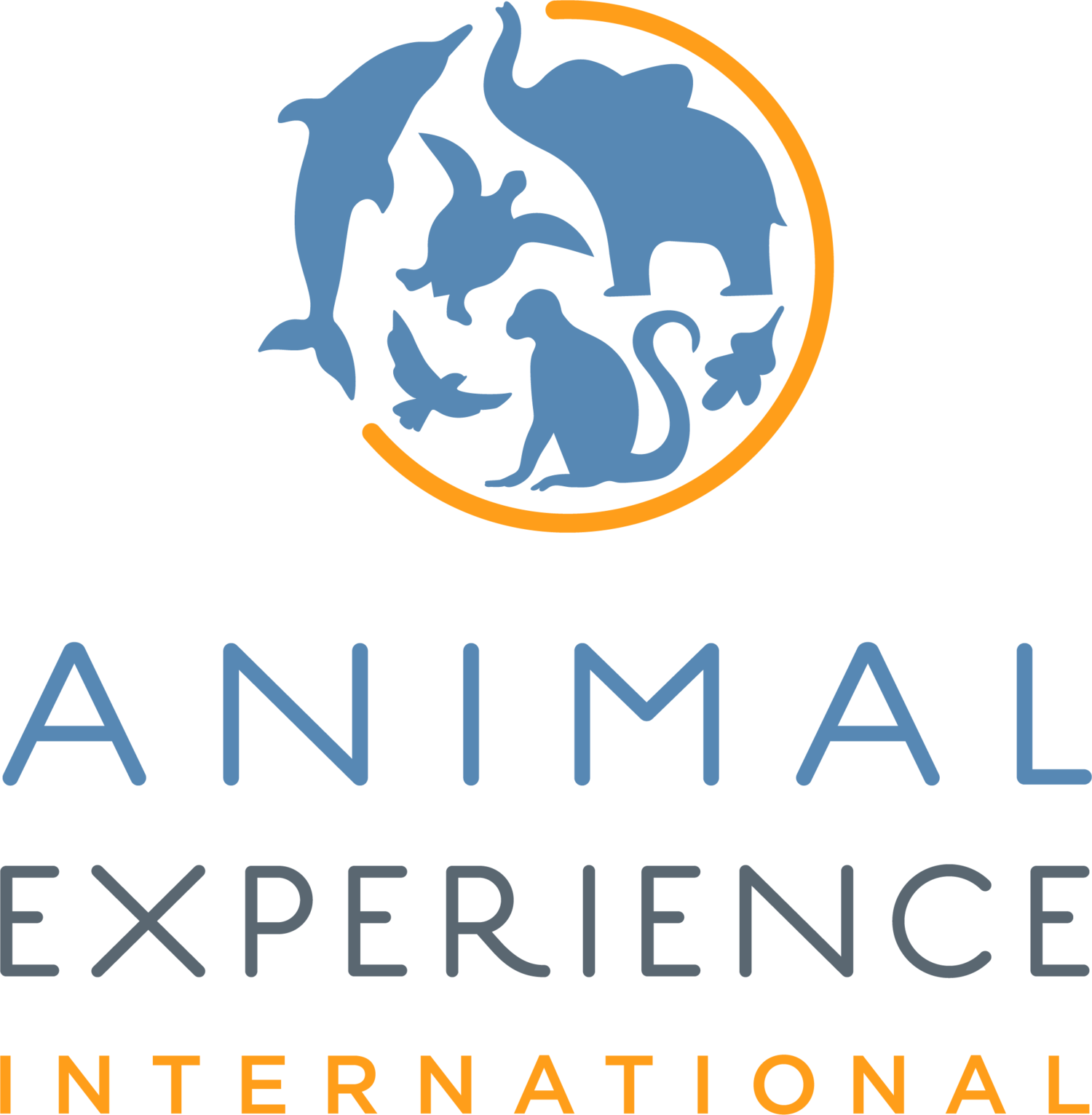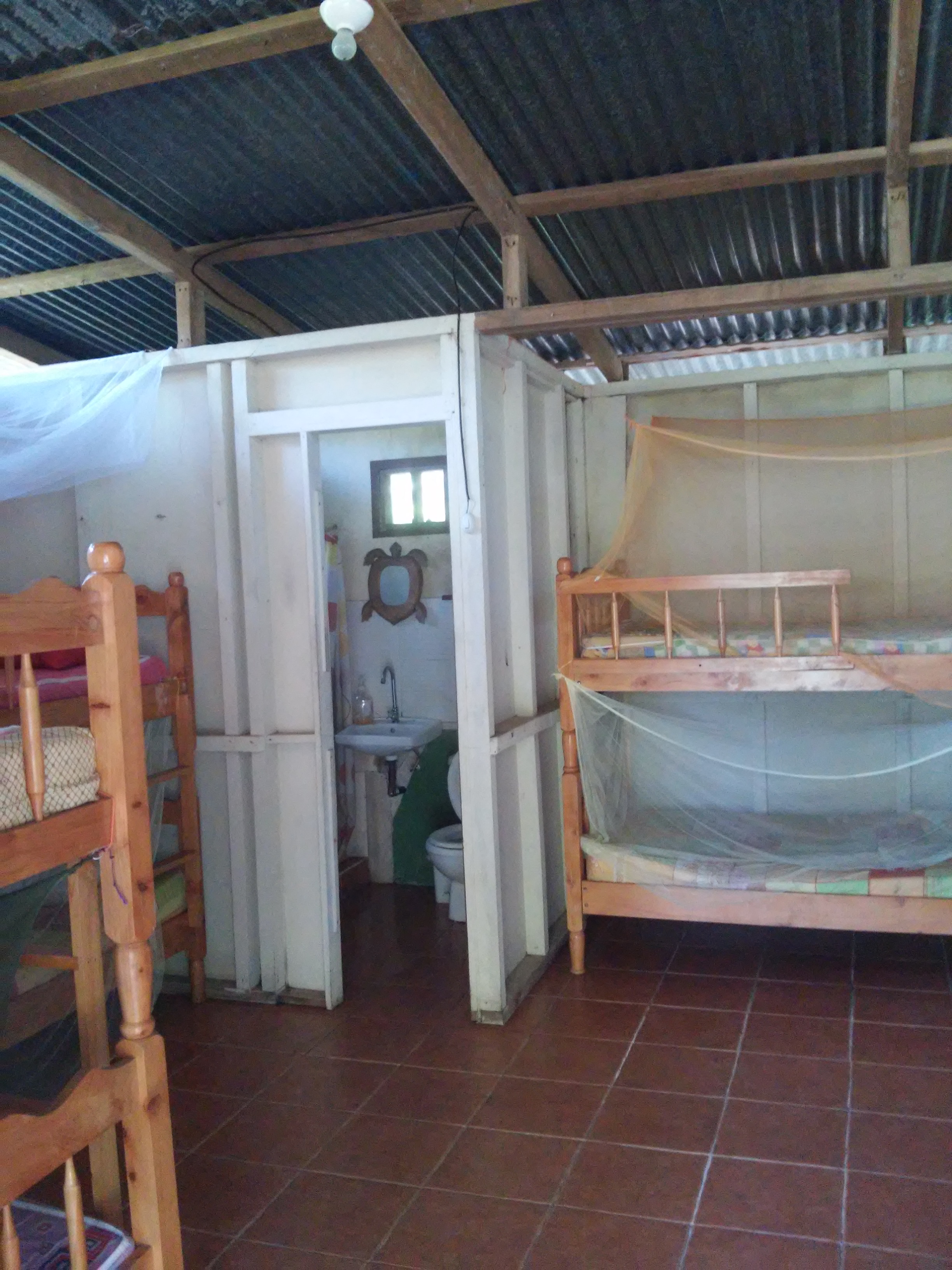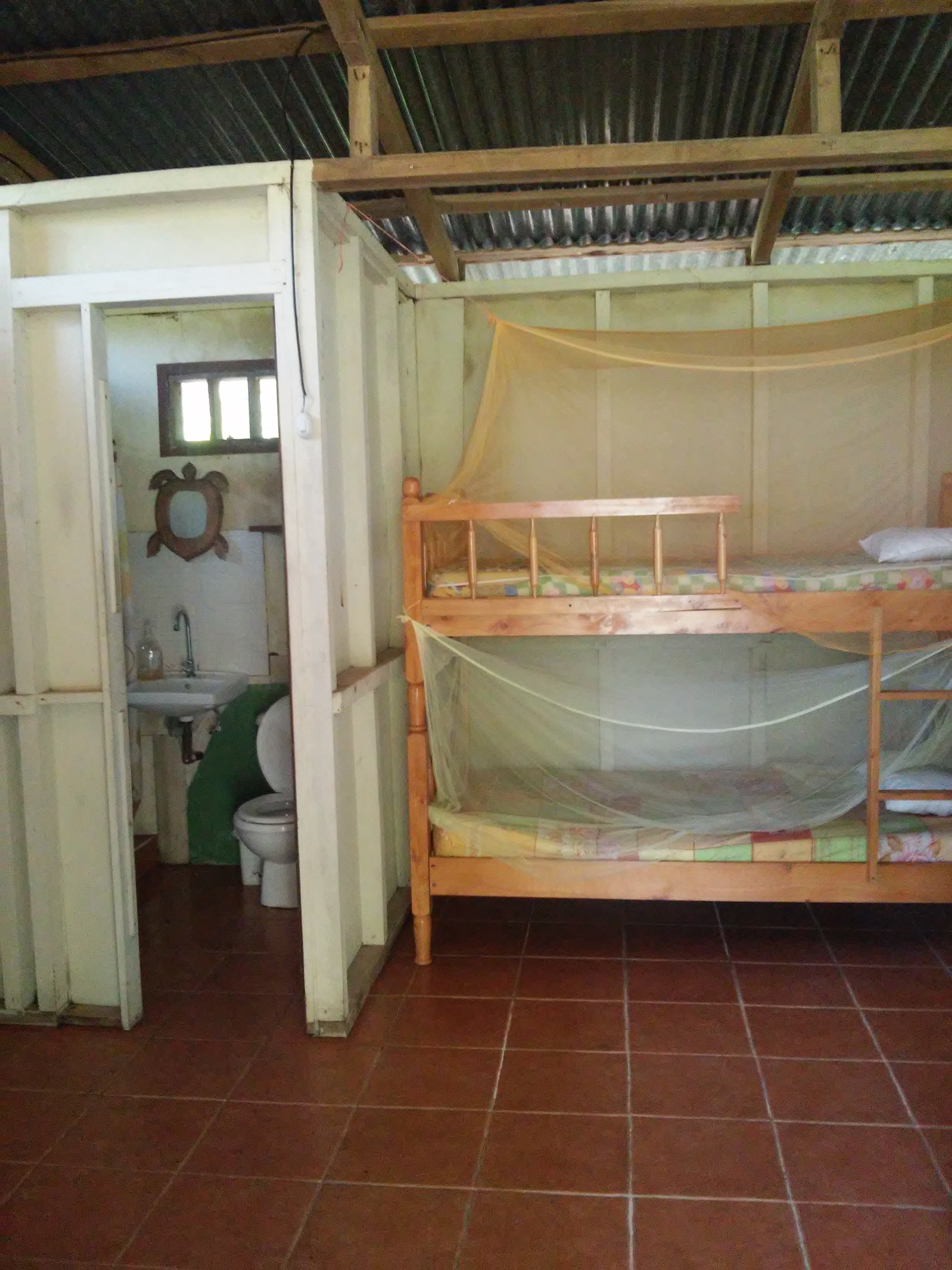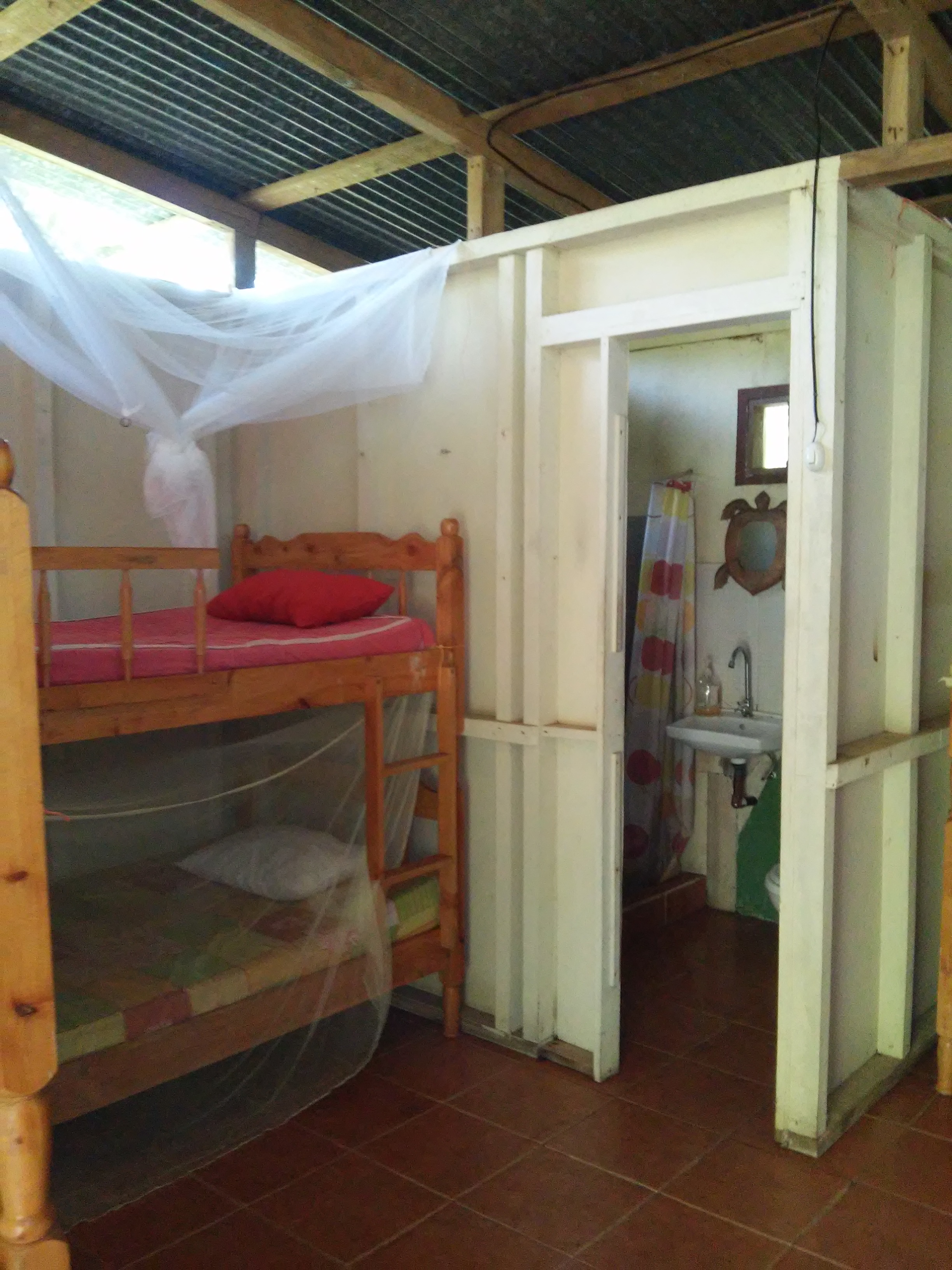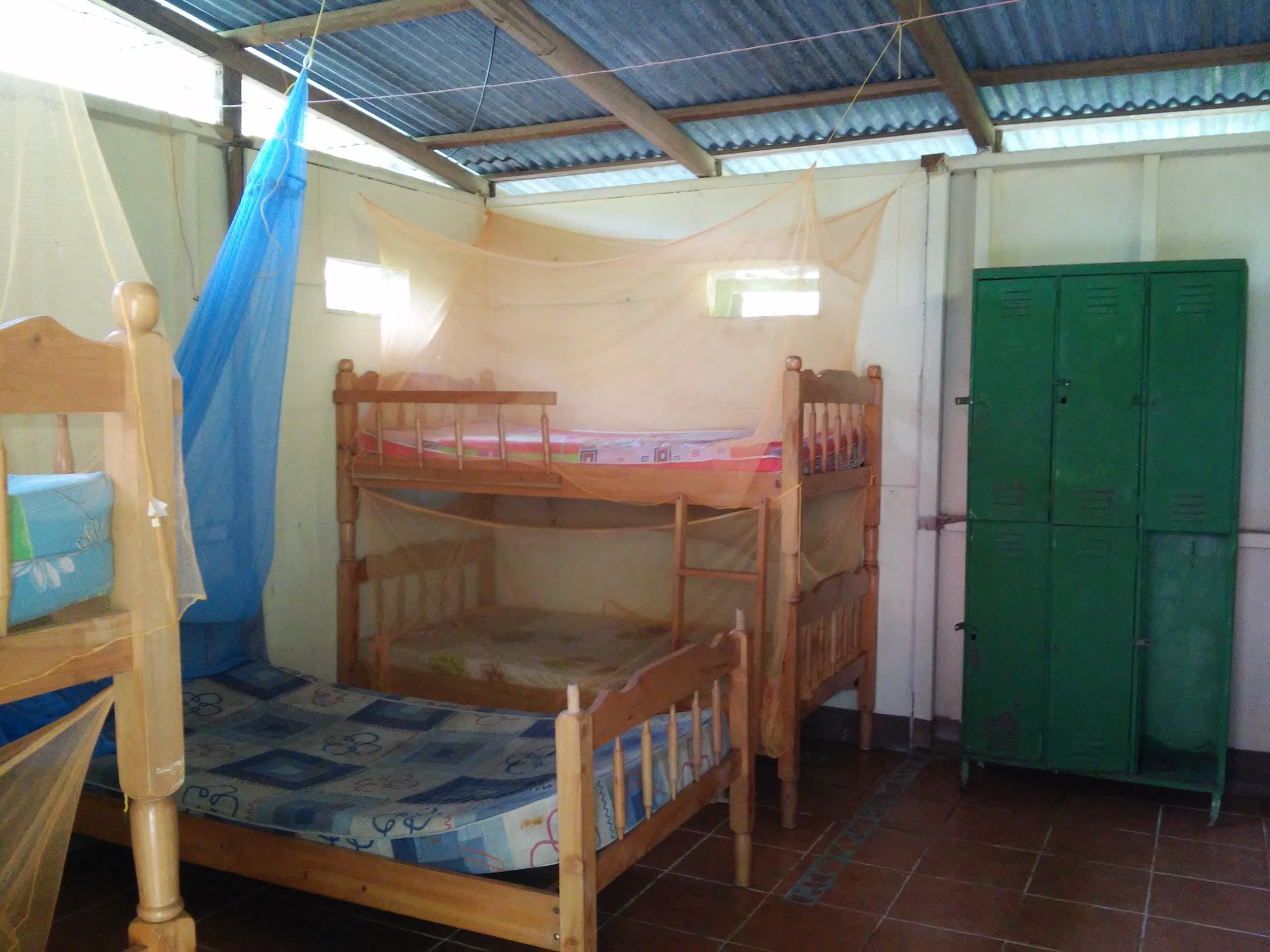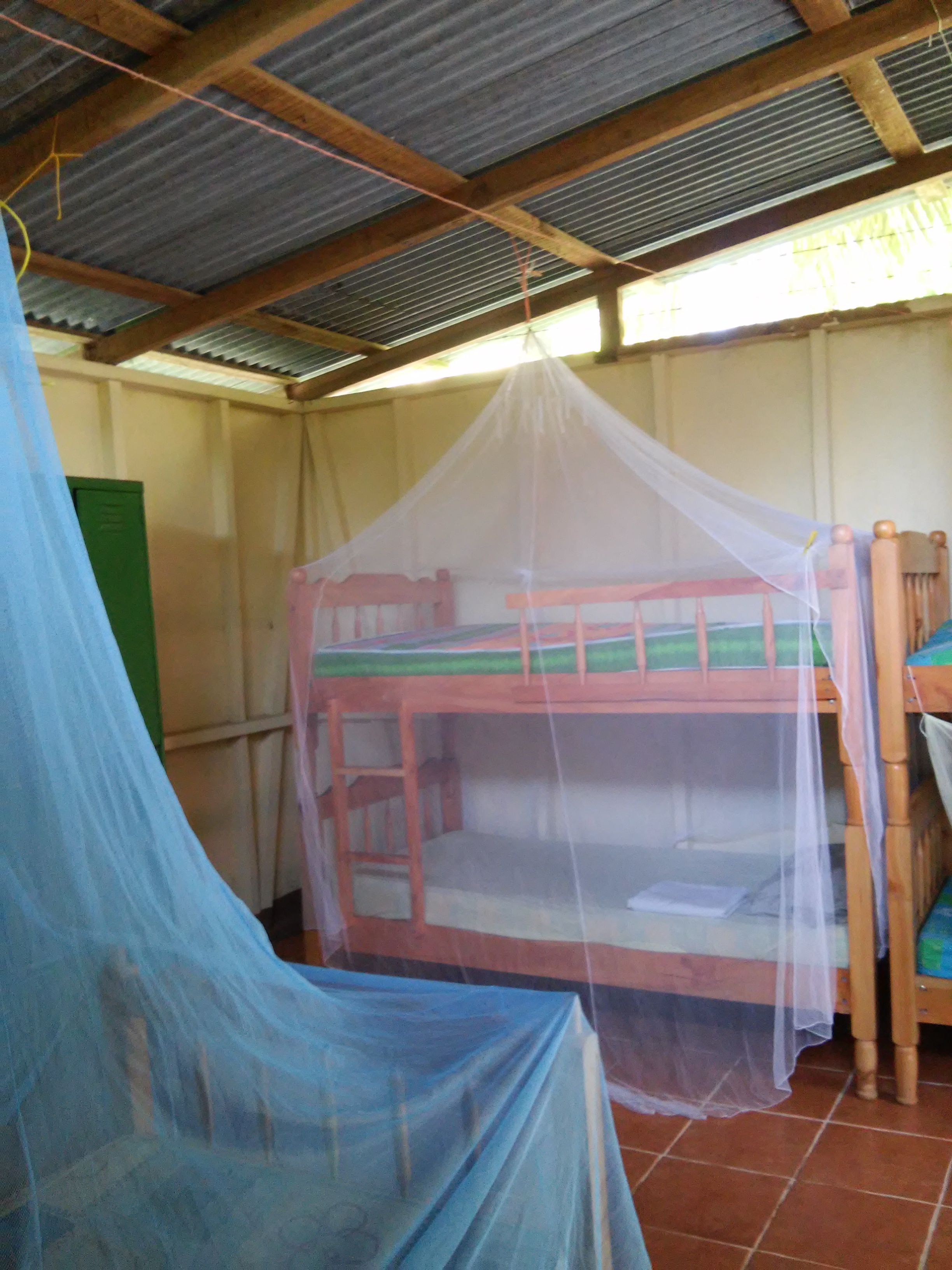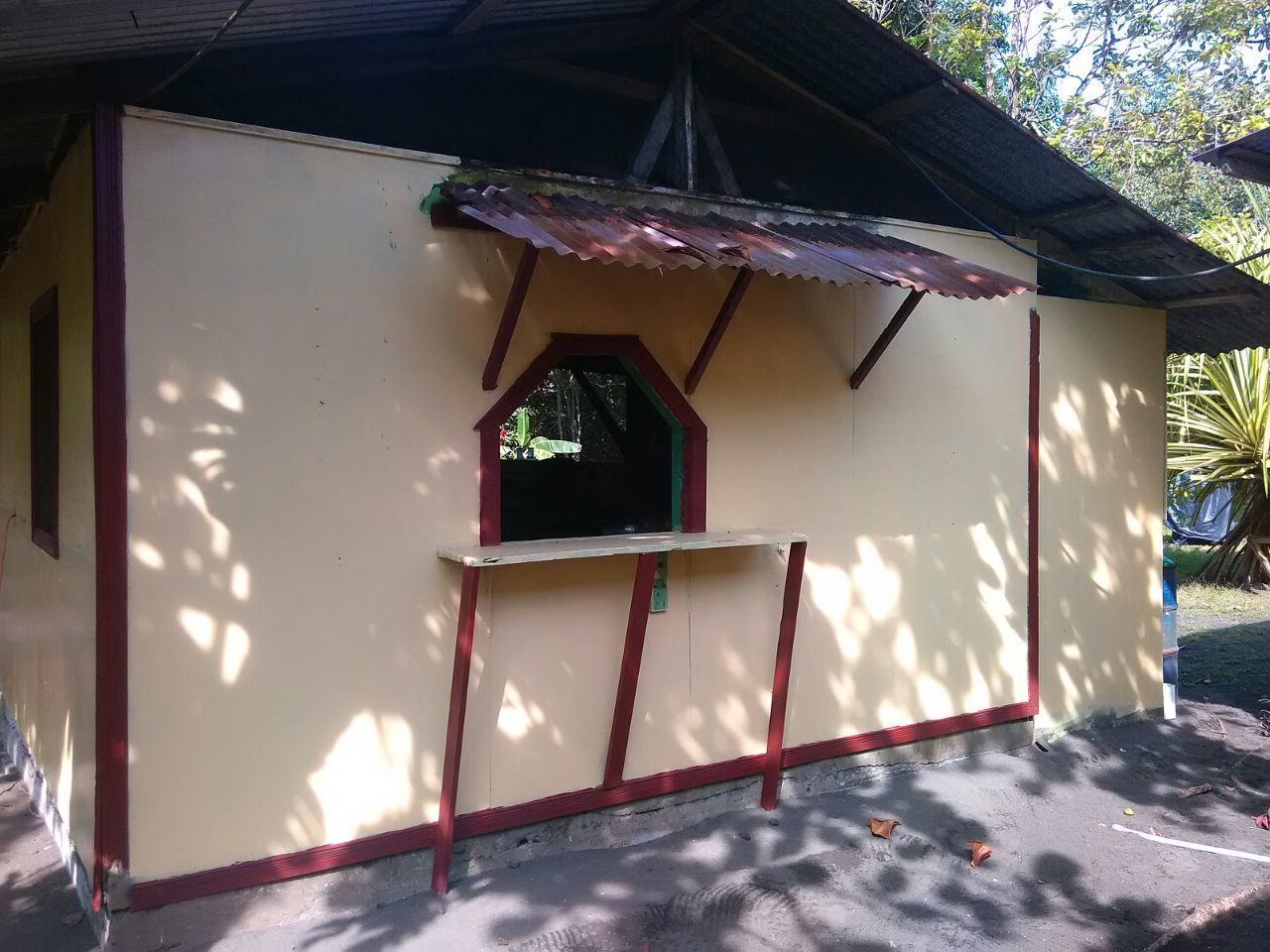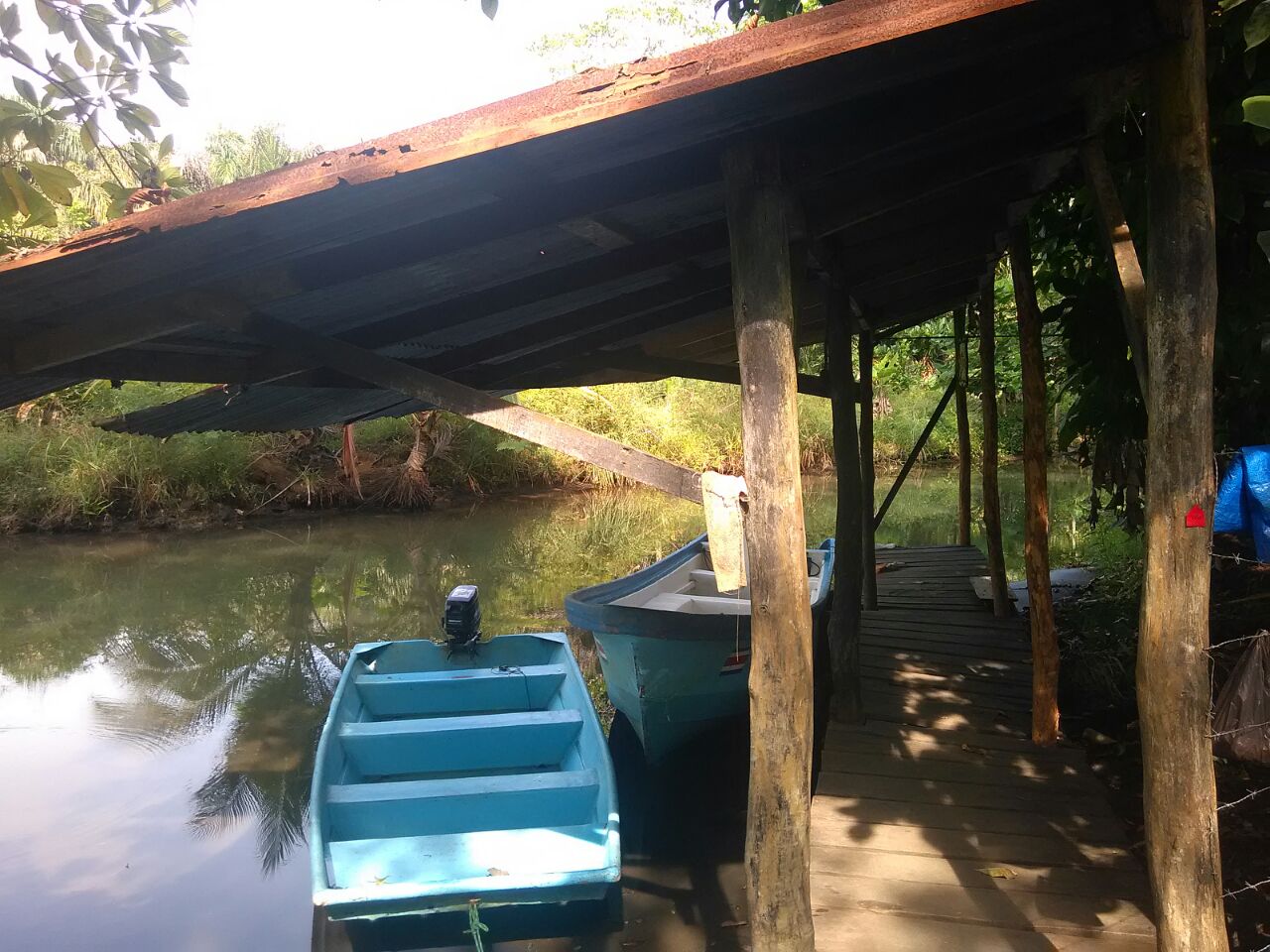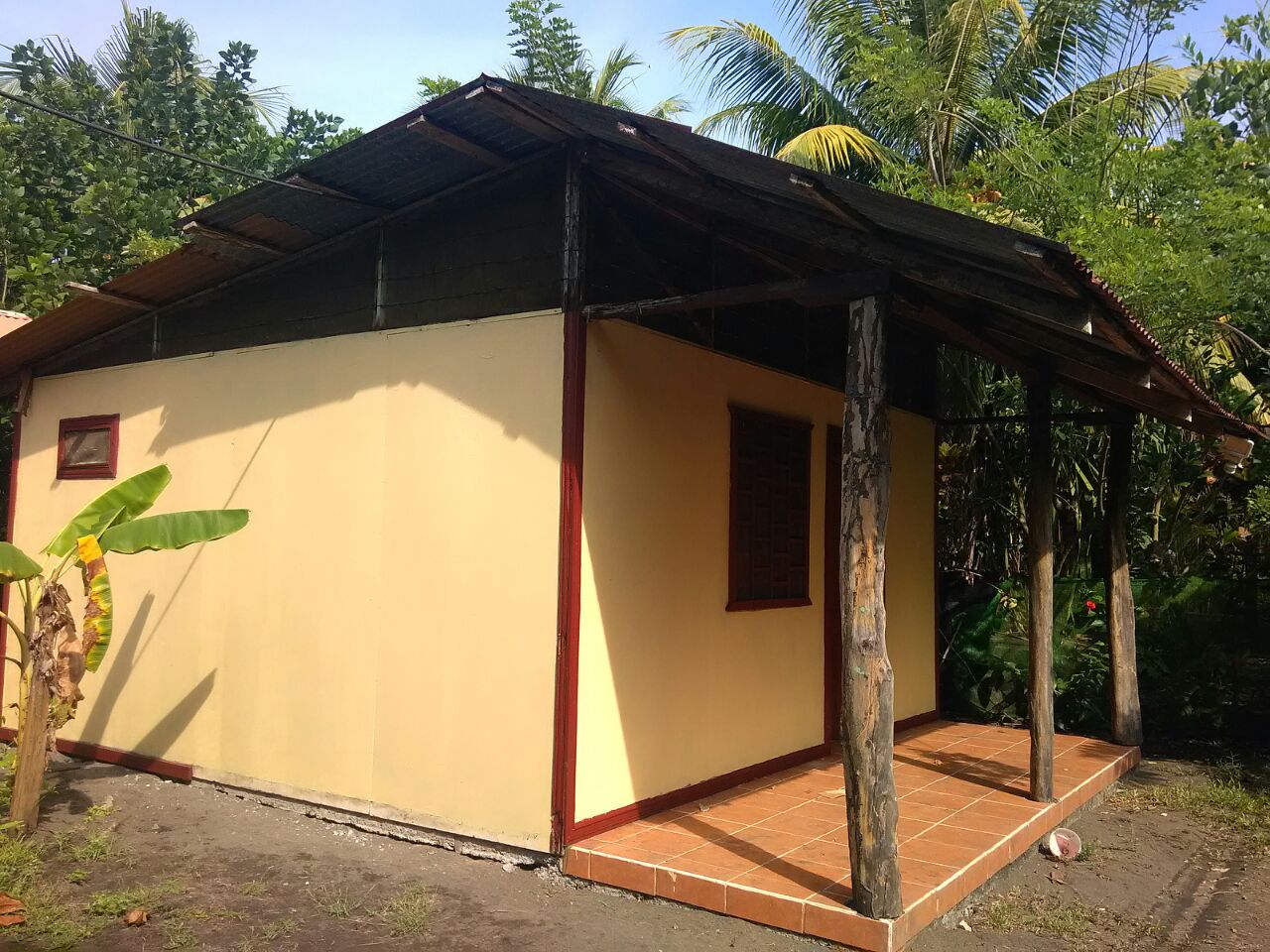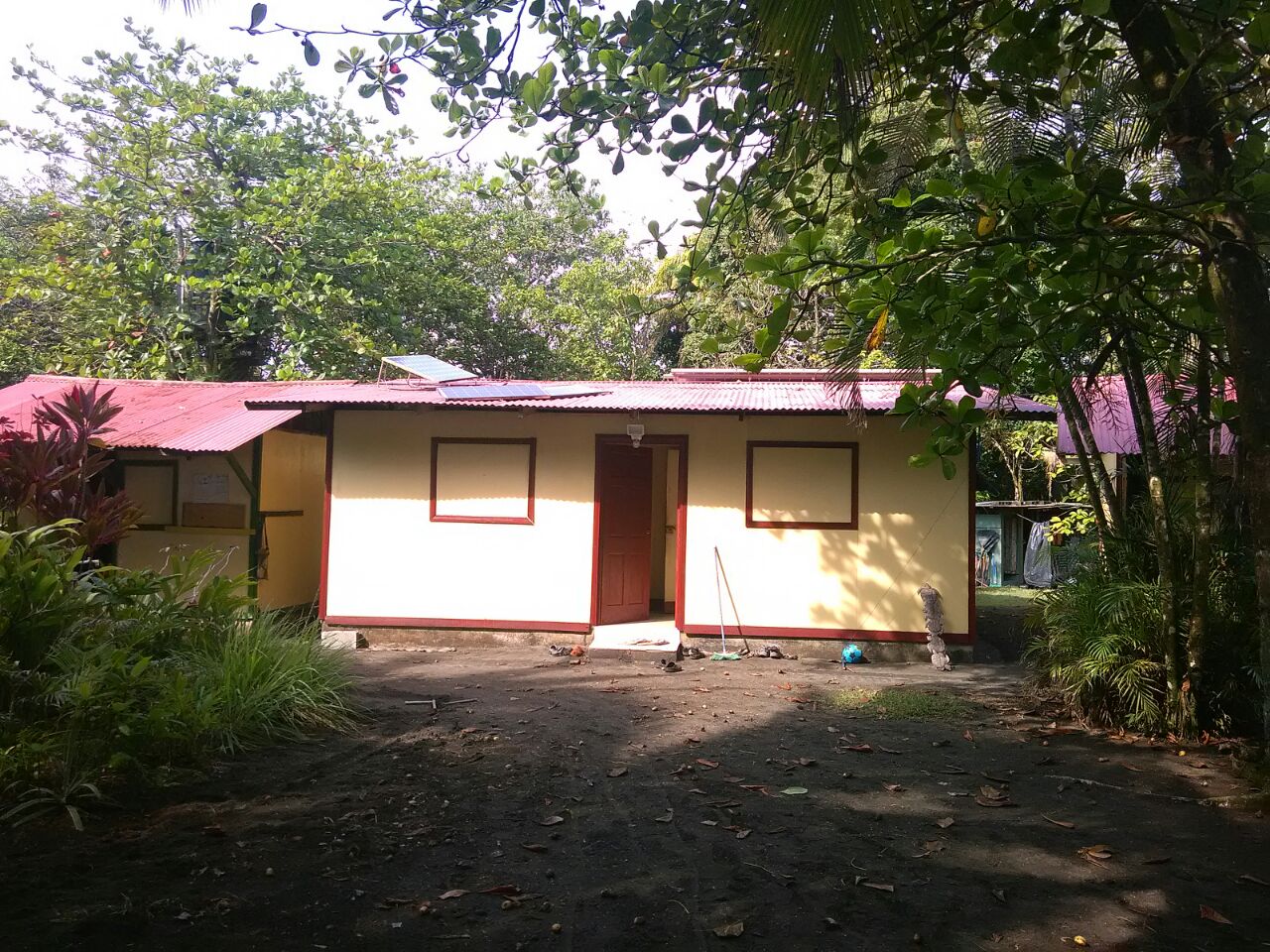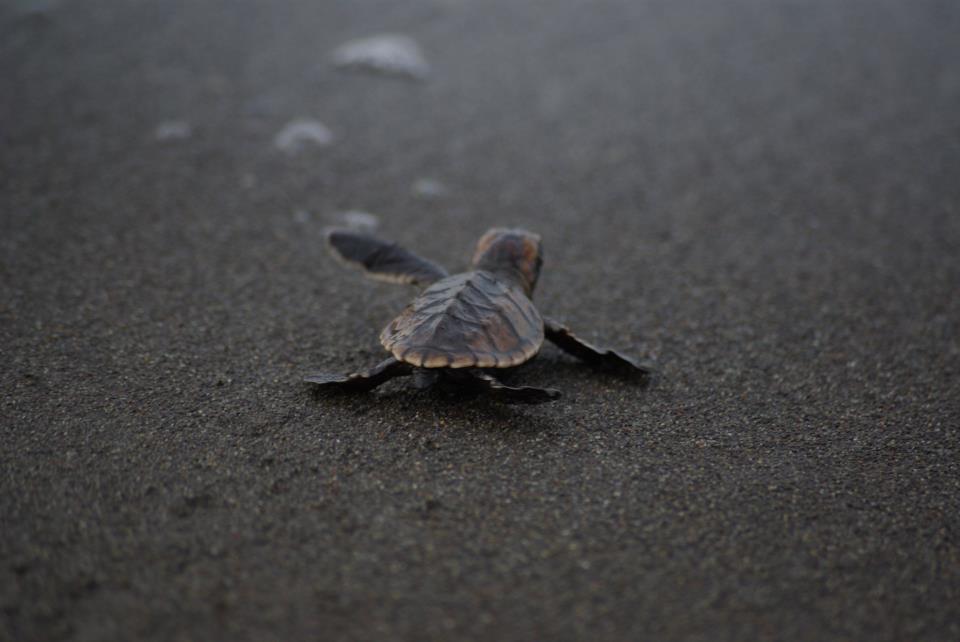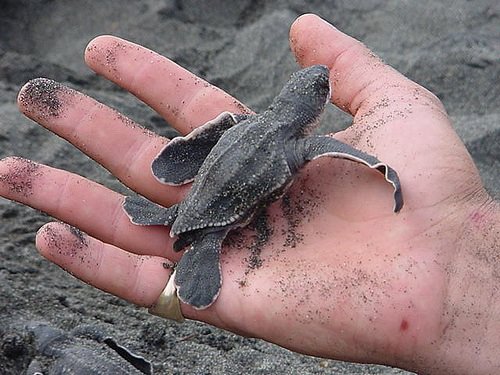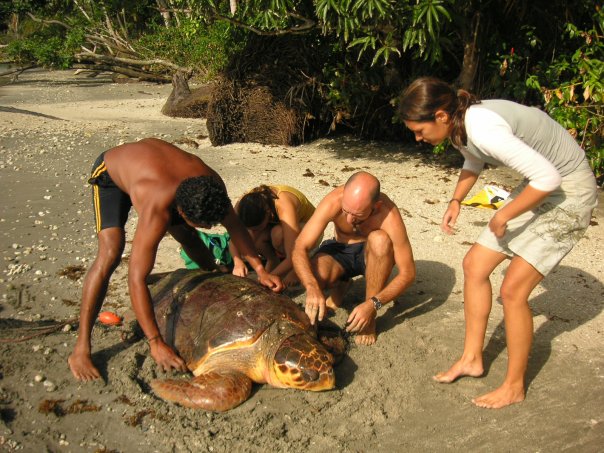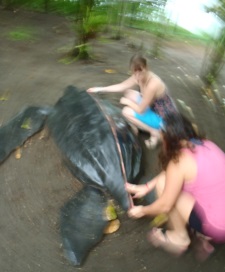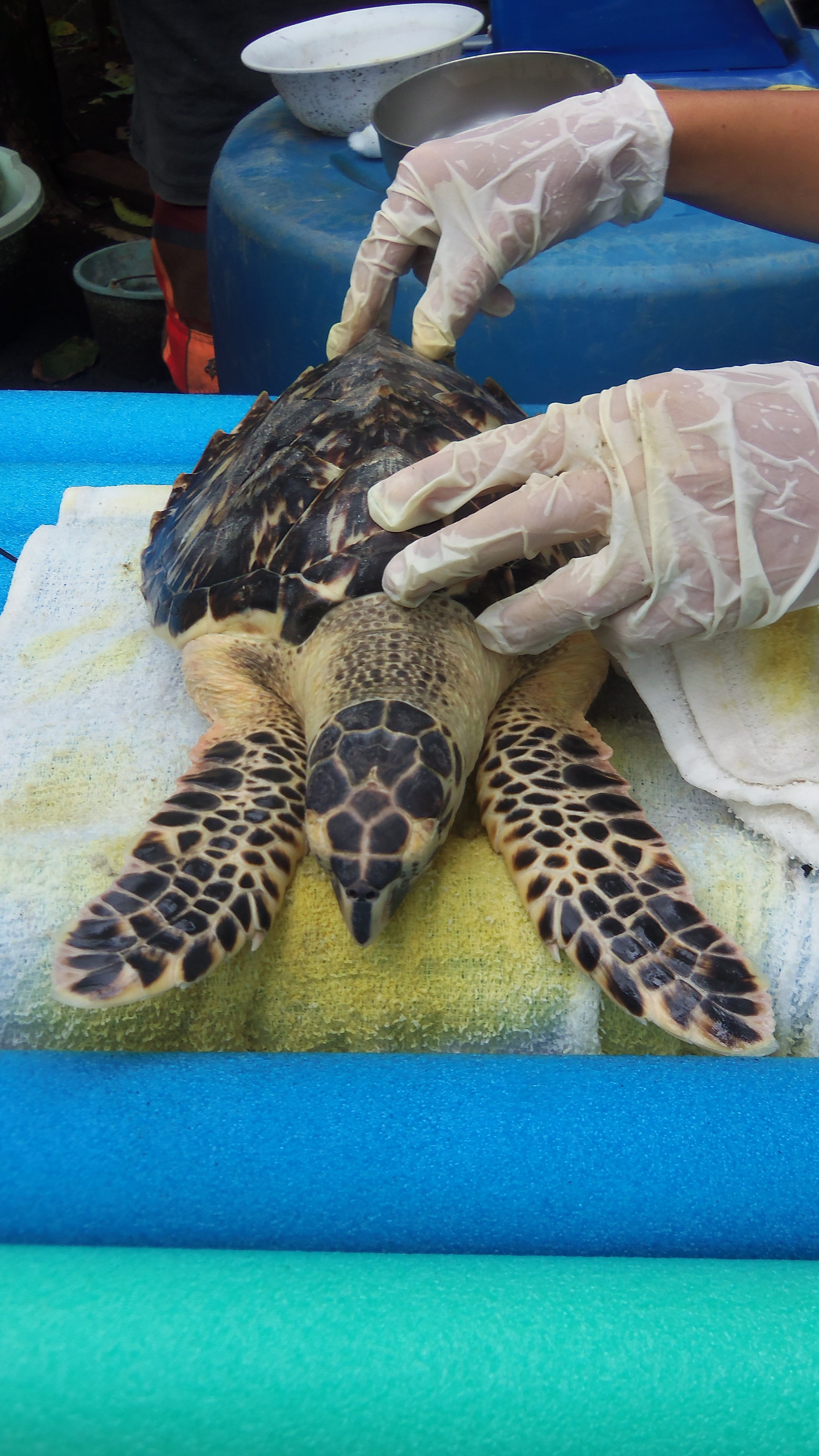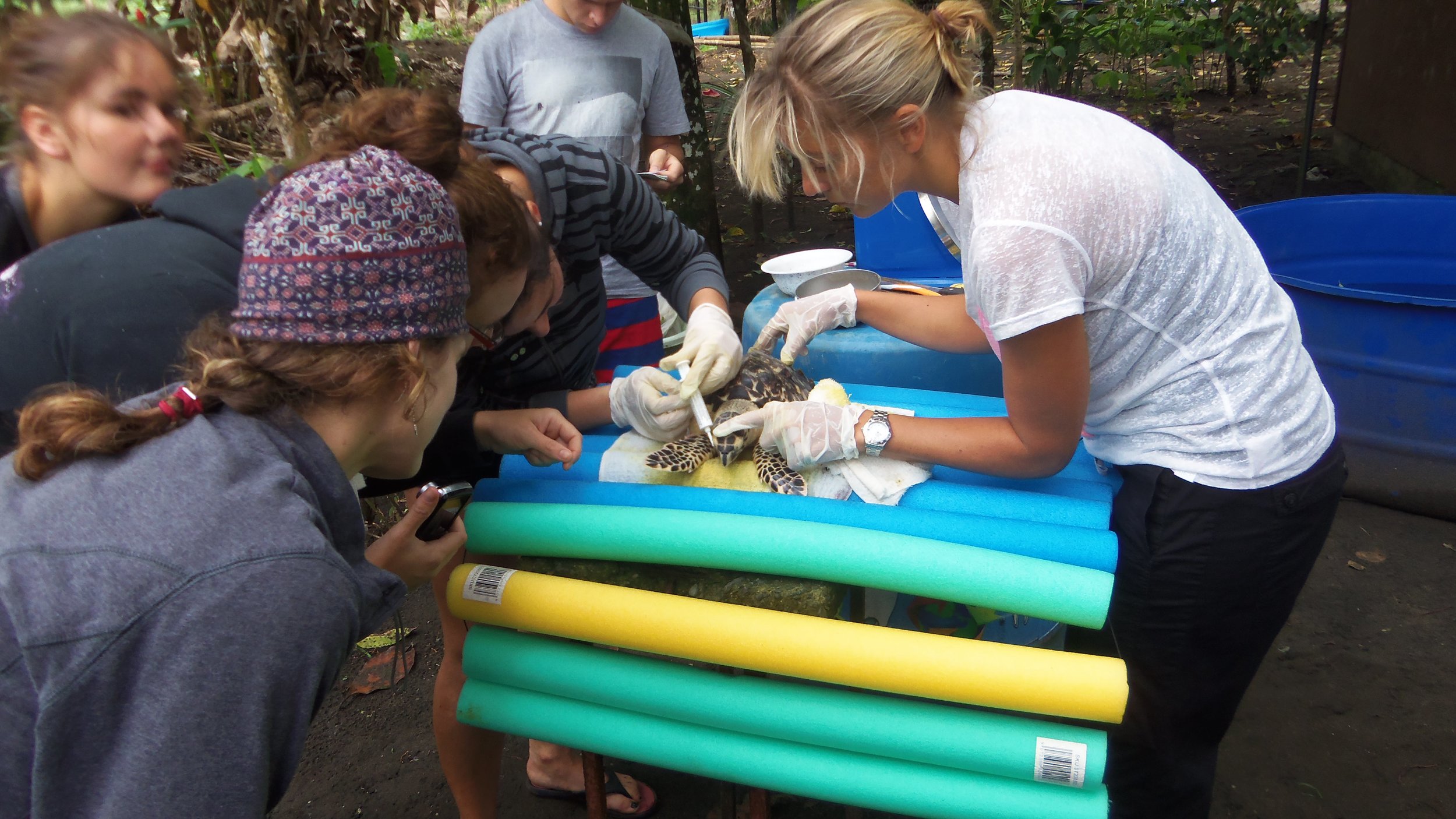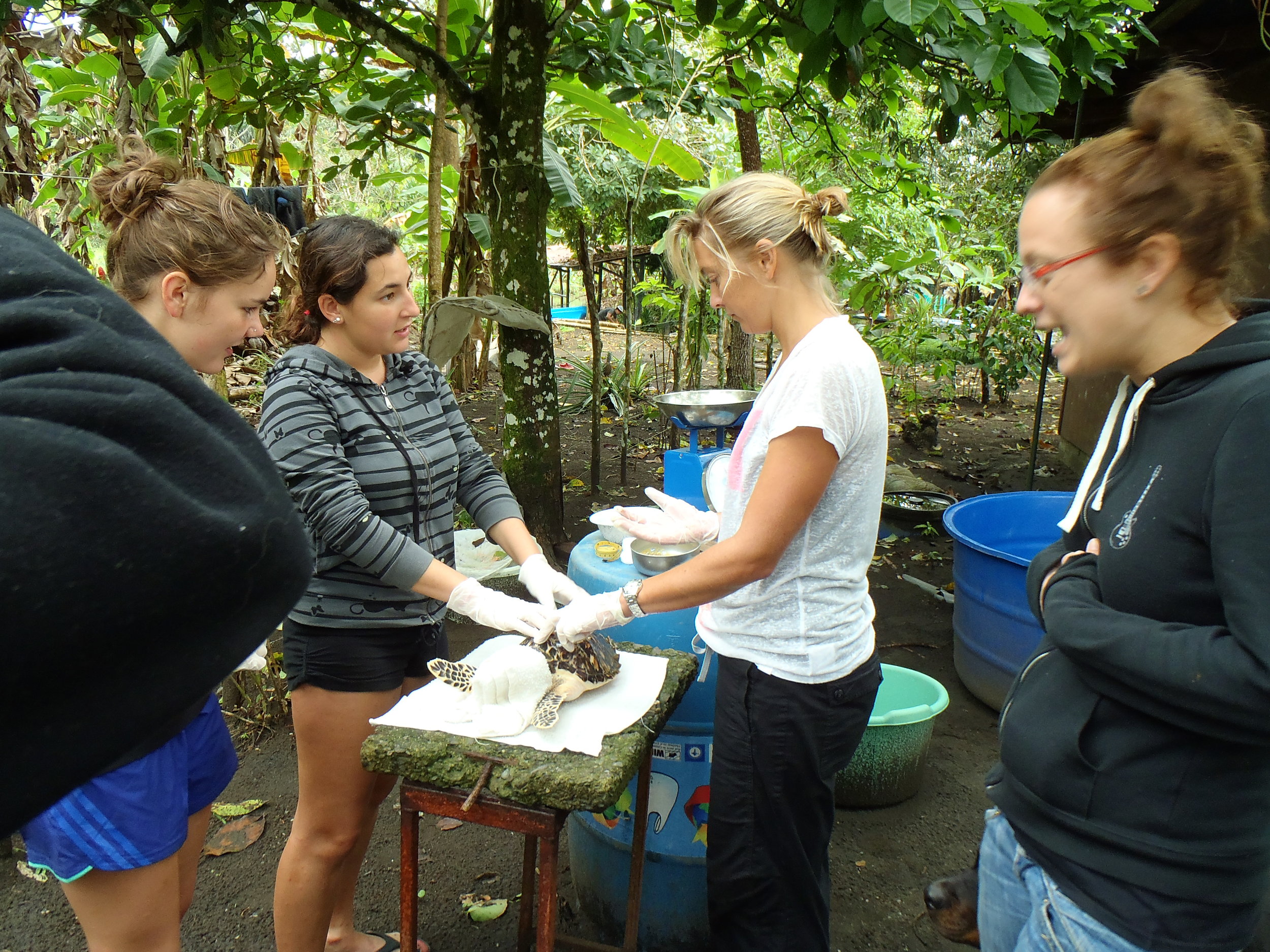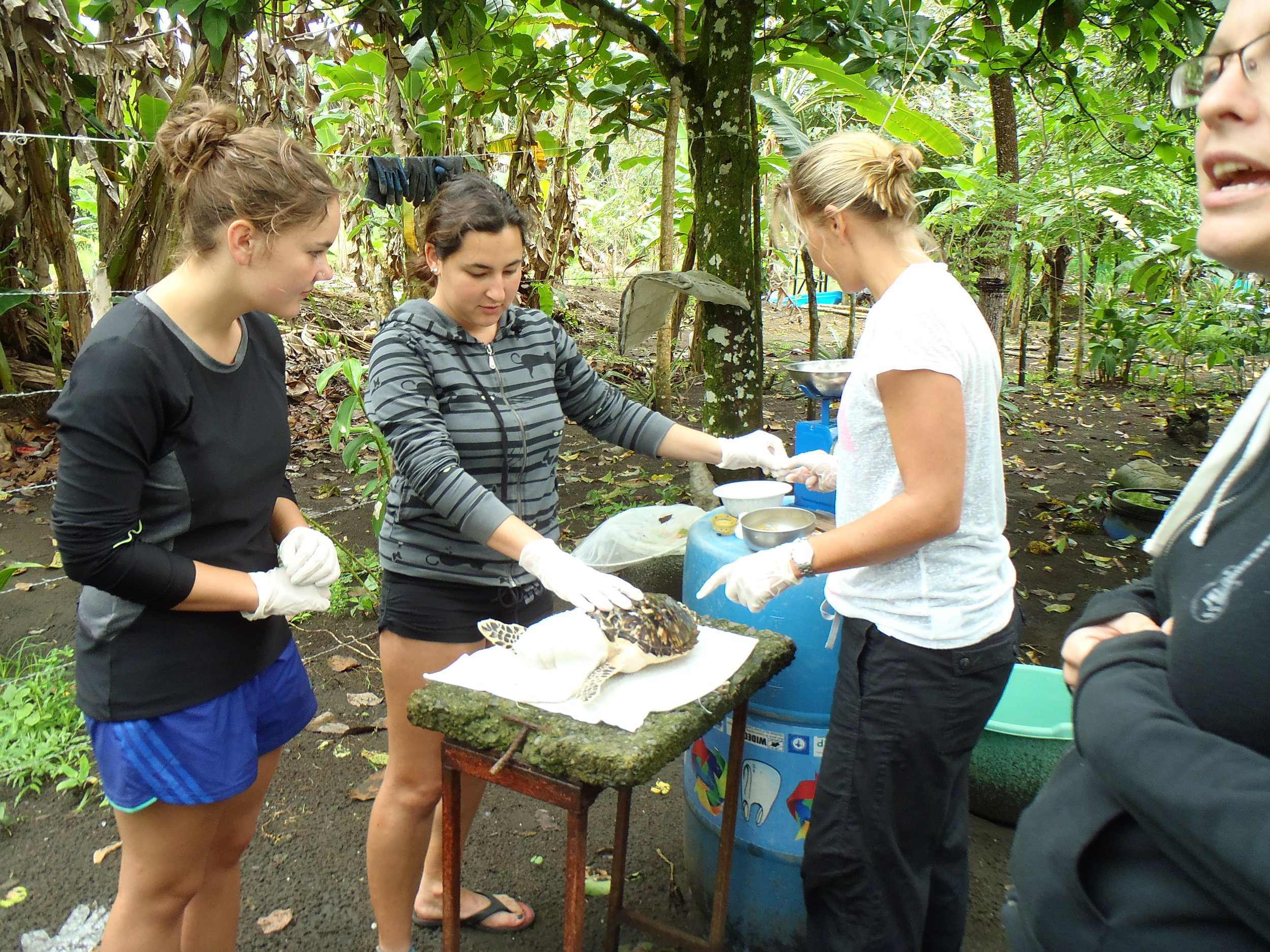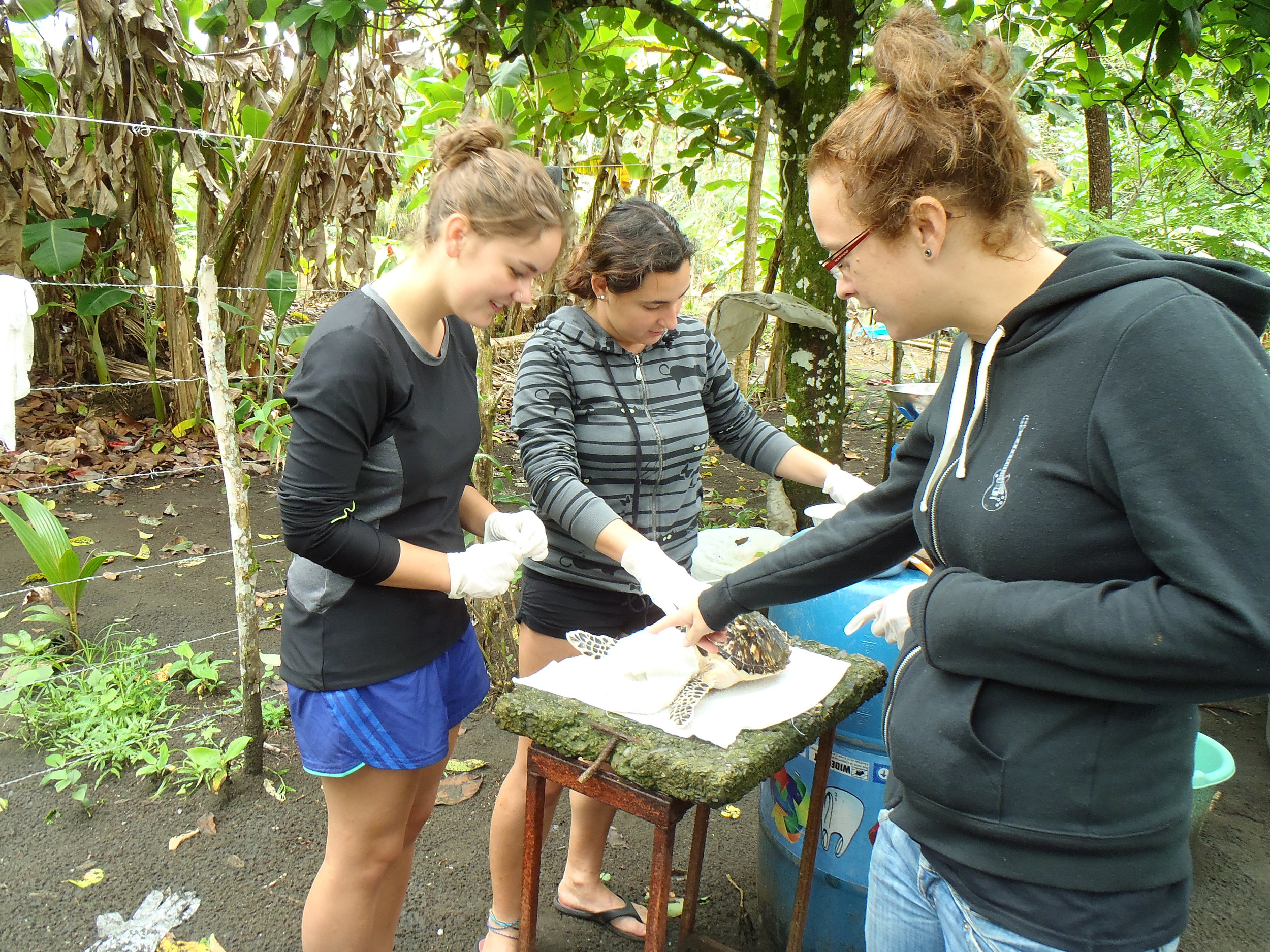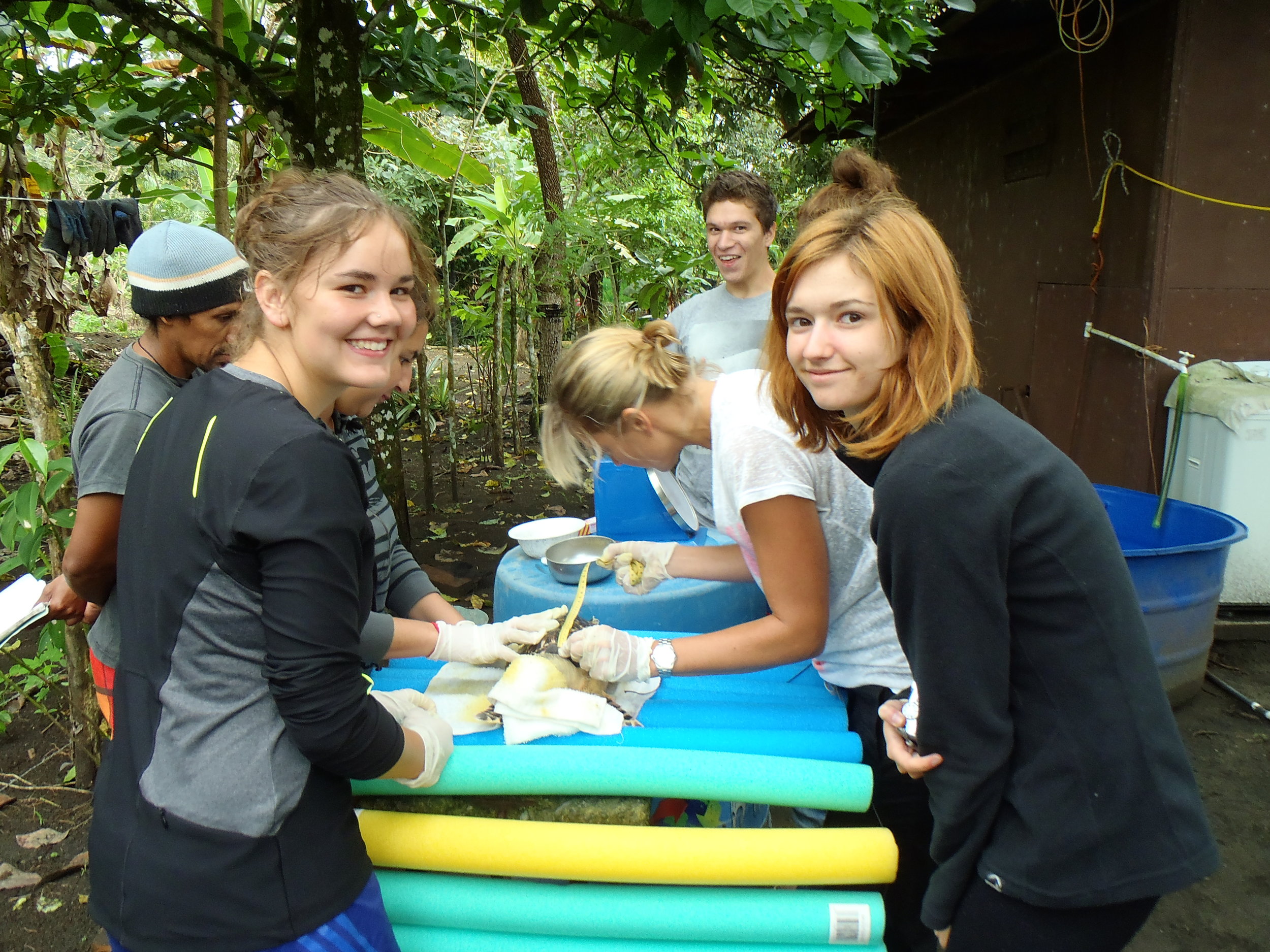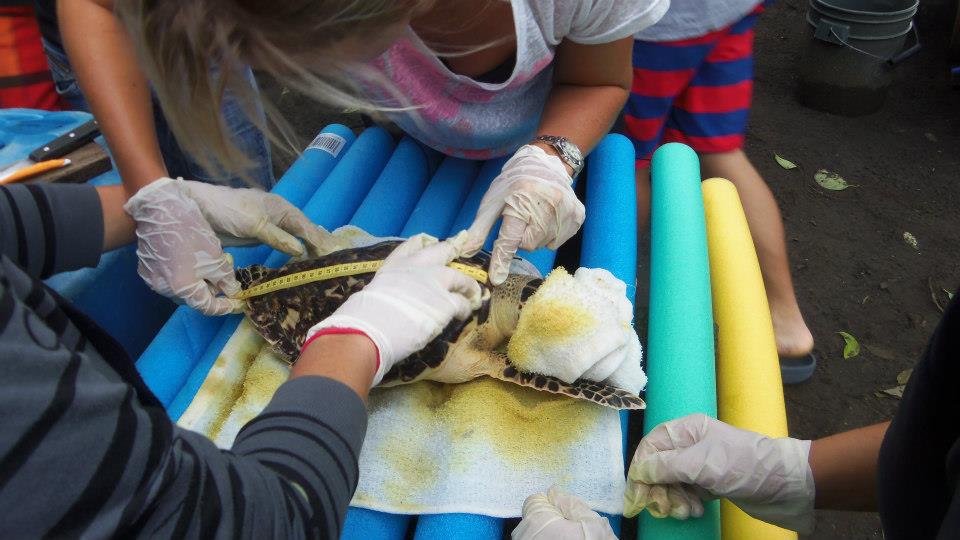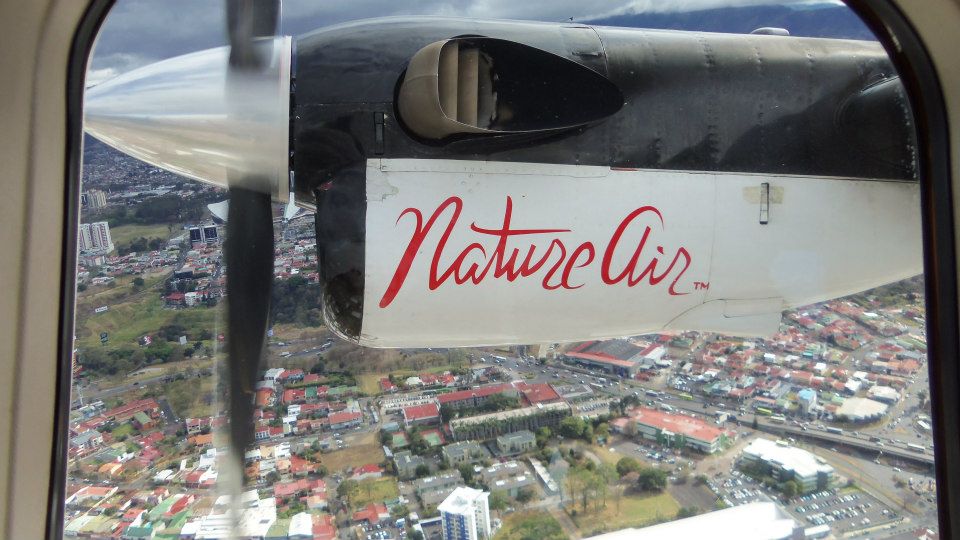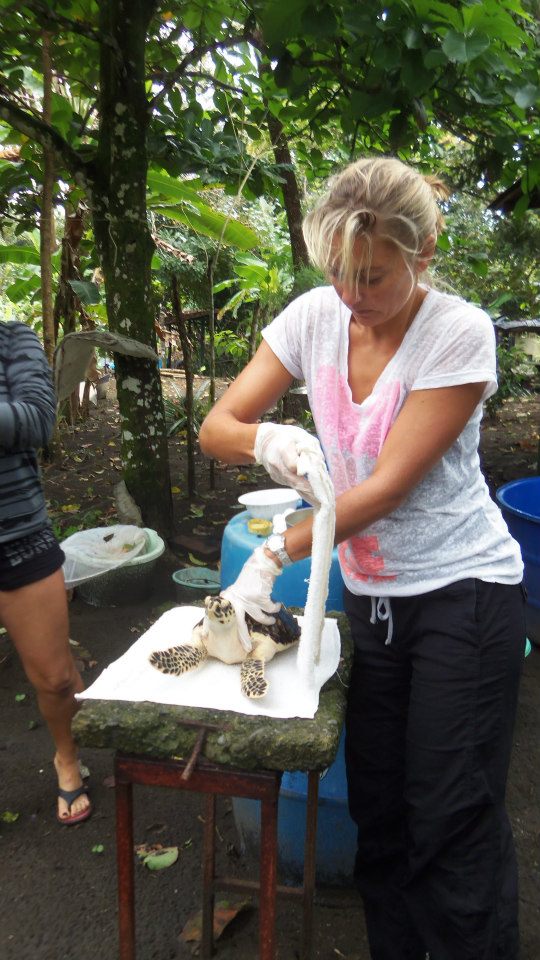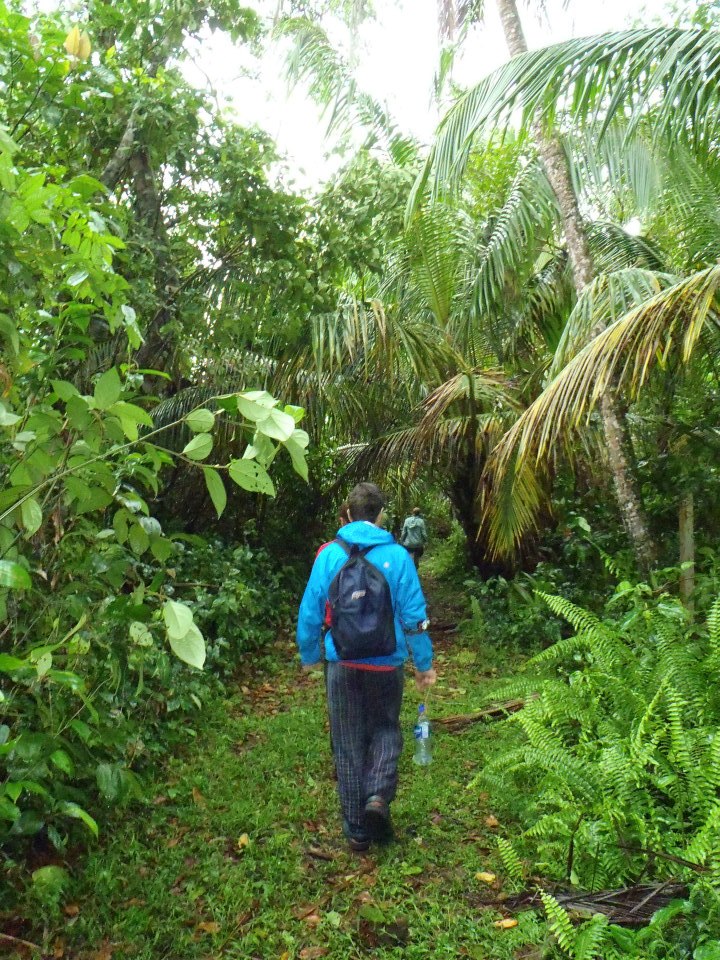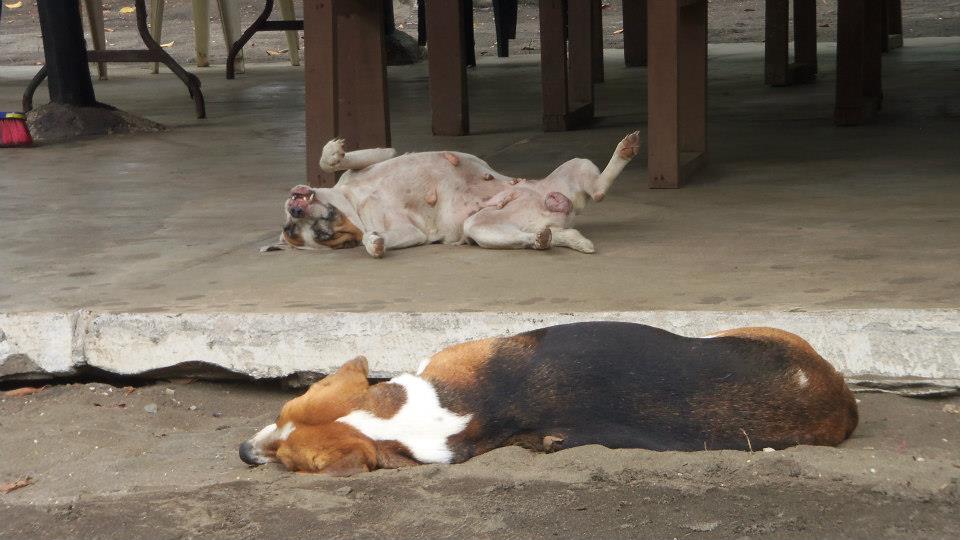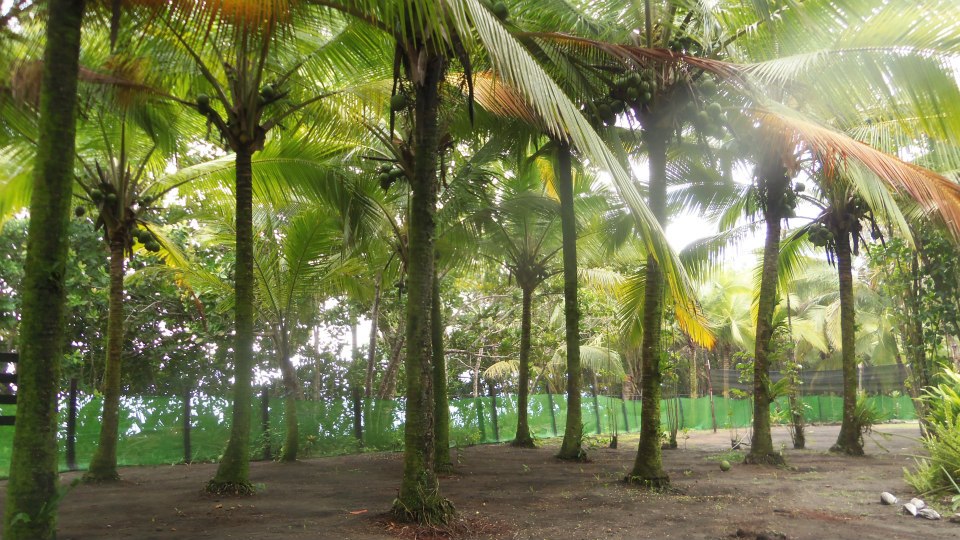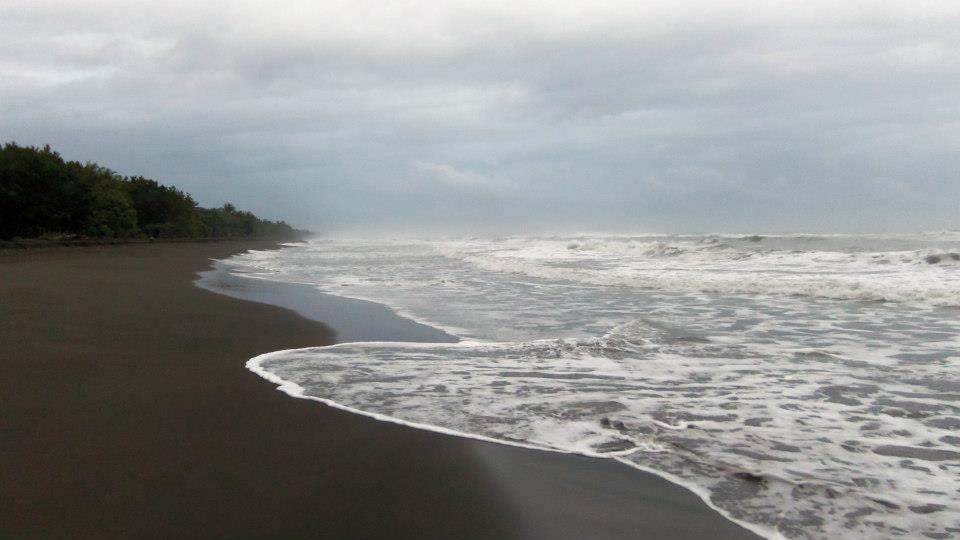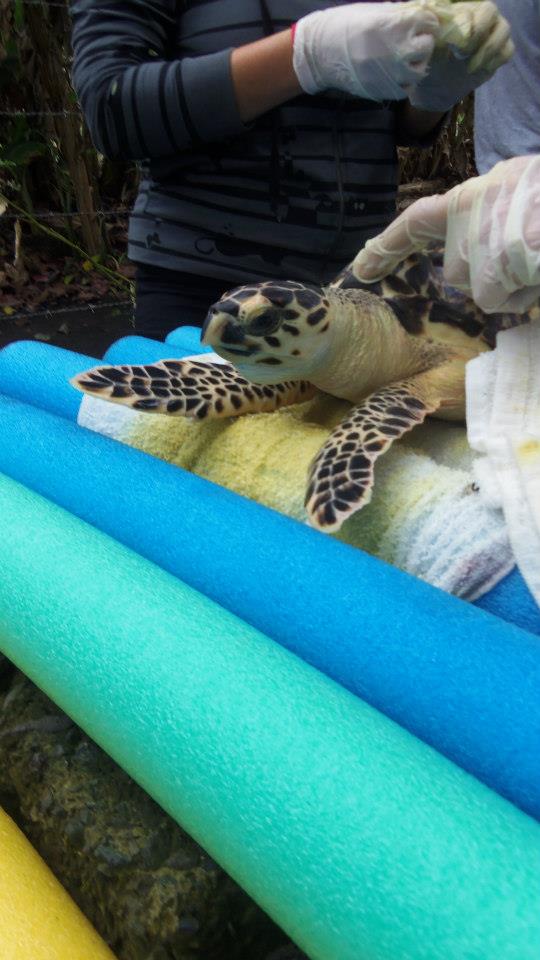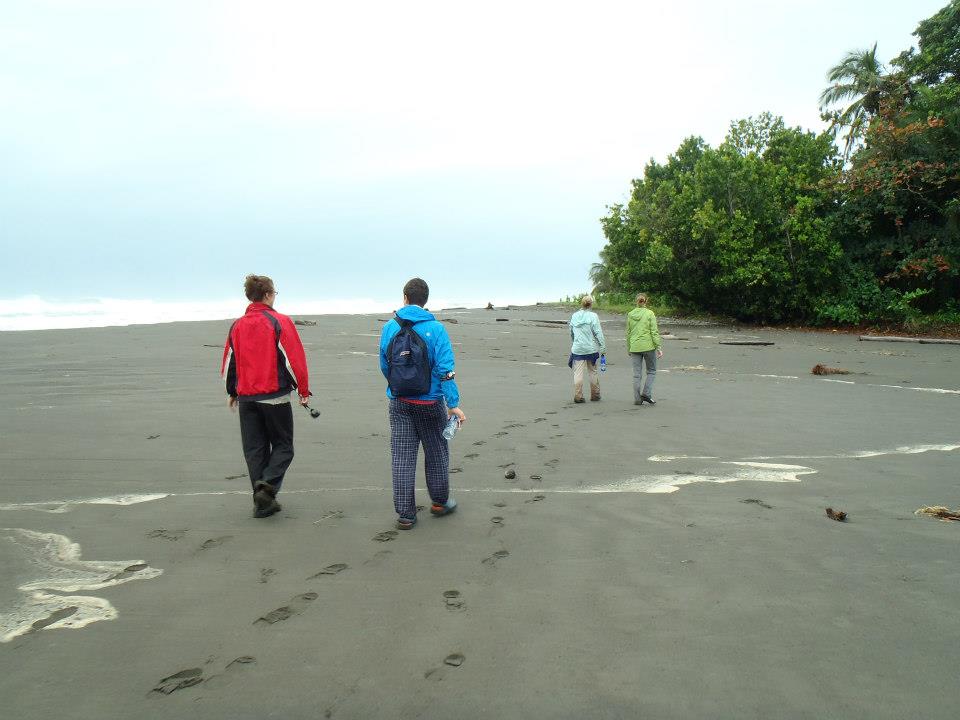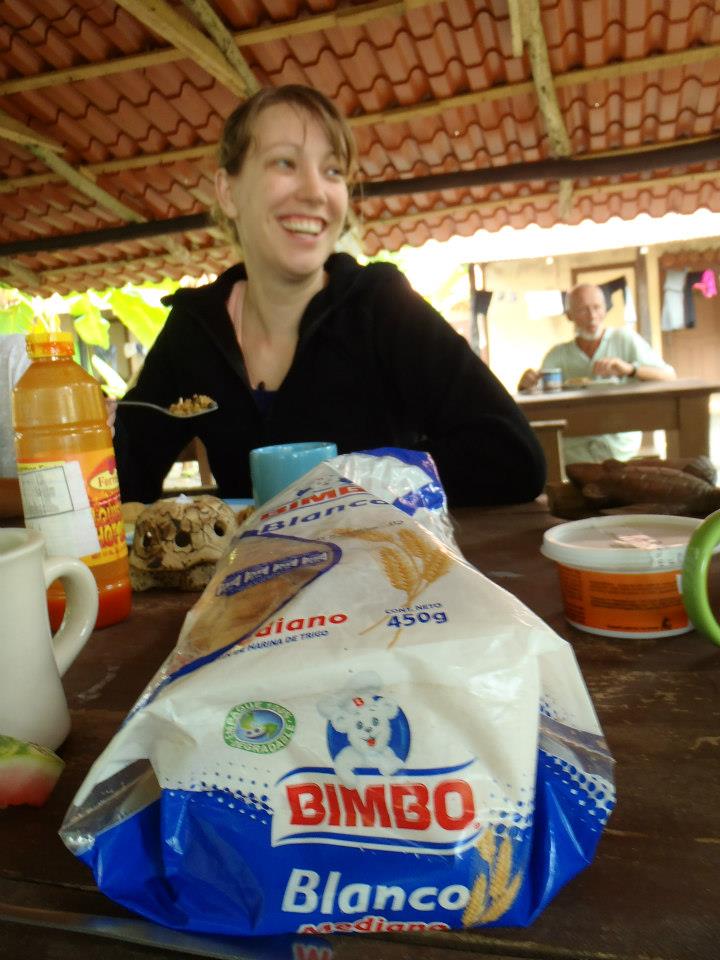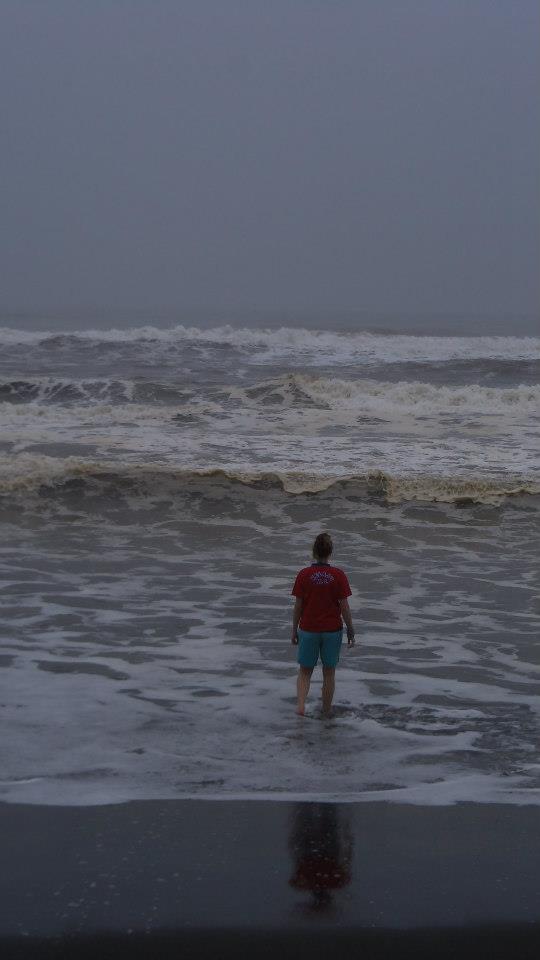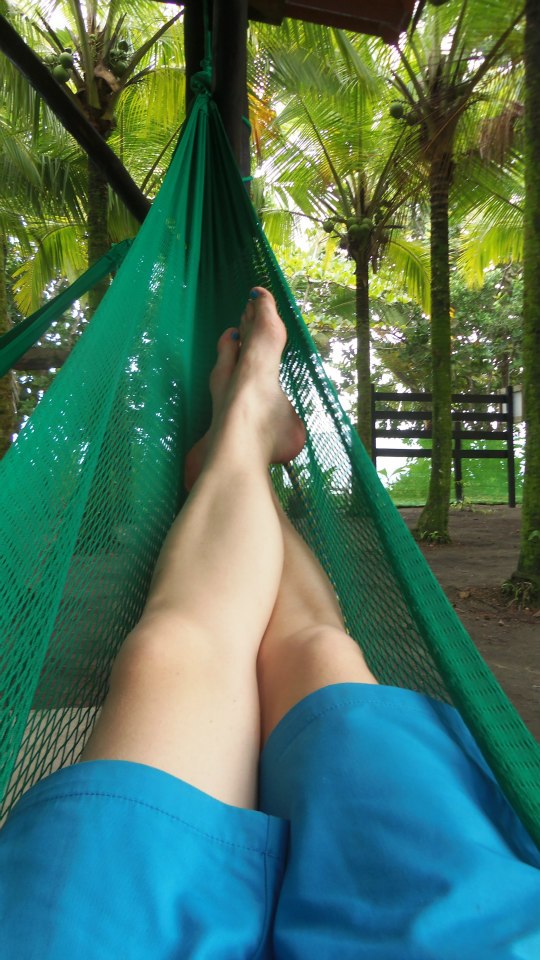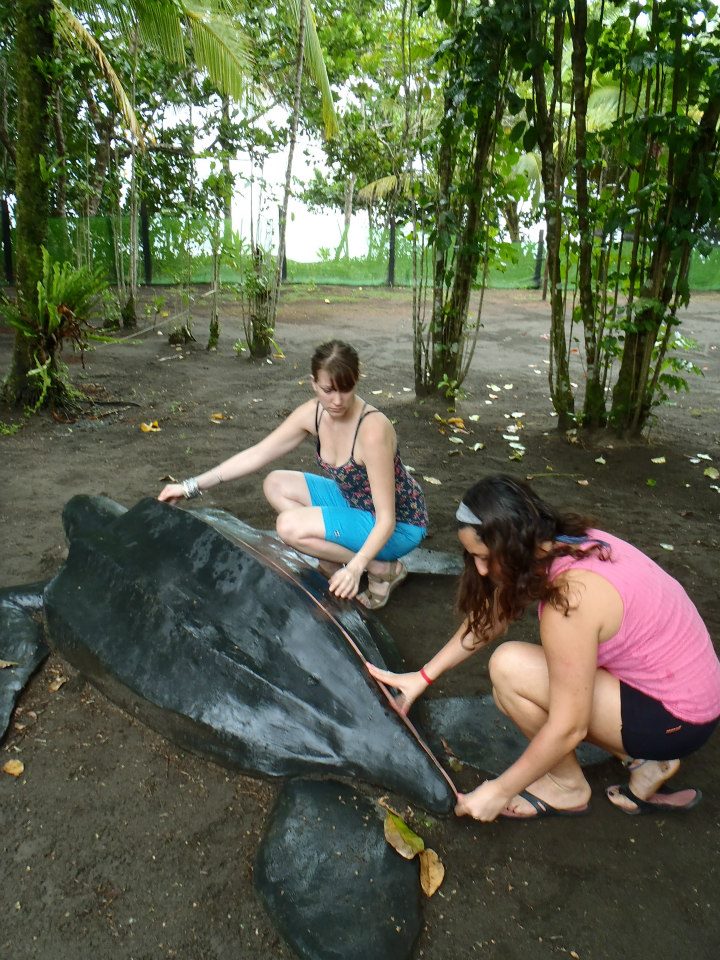The beaches along the Caribbean coast of Costa Rica are the nesting site for many leatherback, hawksbill and green sea turtles that lay their eggs here. As the female turtles come in to nest, they are exposed to many threats. One of the biggest threats is the illegal poaching of the eggs that they lay. The collection and selling of sea turtle eggs is an illegal activity in Central and South America, but it still exists in many countries such as Costa Rica. Our partner works to stop the illegal egg trade, educate local communities and conserve sea turtles. Without the help of this organization, 100% of the eggs laid by these magnificent creatures along the beach would be taken by poachers. The project is able to hatch and release hundreds of baby turtles each year.
Their Nesting Beach project is located in a remote area on the Caribbean coast, bordered by the sea on one side and a canal on the other. Volunteers are needed to patrol the beaches at night when the turtles are active, searching for recent nests or turtles that have come ashore to lay their eggs. The eggs are then relocated to a hatchery where they are protected by the organization until hatching when the baby turtles can be returned safely to the ocean.
Volunteer Activities
Volunteers check a leatherback sea turtle's biometics.
Volunteer activities will vary depending on the time of year and the activity of the turtles. At certain times of the season the focus is on collecting the eggs as the female turtles visit the beach. At other times volunteers are more involved in the care of the eggs in the nursery and release of the hatchlings. There are daily duties to maintain the facility, such as raking and washing dishes. Everyone works together to make sure the research station is kept in top condition and is running smoothly.
Beach patrol occurs at night when the turtles are active. Groups of volunteers follow the project leader along an assigned section of beach that is 2.4 km (1.5 miles) long, searching for turtle activity. You will participate in one of two shifts – either from 8 pm to 12 am or from 12 am to 4 am. Once a female turtle has been found, volunteers help measure and tag the sea turtle and carefully collect her eggs to move to the hatchery.
The hatchery needs protecting 24 hours a day, and you will be involved in this work by 6 hour shifts. Activities include maintaining and protecting the nursery, and at certain times releasing newly-hatched turtles back to the ocean.
Accommodation
Volunteers sleep in shared cabins (same gender) that are on-site and a short distance from the beach. These cabins belong to the station of the project area. Three delicious Costa Rican meals are included each day. Juice and coffee are always available and very good drinking water comes from a well. Electricity is provided by solar power and is available to light the community area at night but not for personal needs. Due to its remote location, there is no internet or cell phone signal at the project. You will be taking a vacation from your devices and immersing yourself in the wonders of nature while you are at the project!
Safety
Do you have questions about safety? We have answers right here!
Includes
Airport pick up and drop off (at the closest airport), accommodation, meals, on-site training, donation to Placement Partner, AEI Travel Manual, emergency support while at placement, carbon credits to offset 3 tonnes of greenhouse gas emissions, premium Individual Travel Insurance (up to $500, 000 USD in emergency medical coverage), travel discounts (through automatic membership to a volunteer only travel discount program), 24/7 travel and emergency assistance, enrolment with the Global Travel Academy to earn a certificate in International Volunteering. This 3-hour online course is curated by travel professionals and is designed to help you get the most out of your adventure.
Excludes
Flights, entry visa costs, international and domestic airport taxes, immunizations and medications.
casa de volunteers
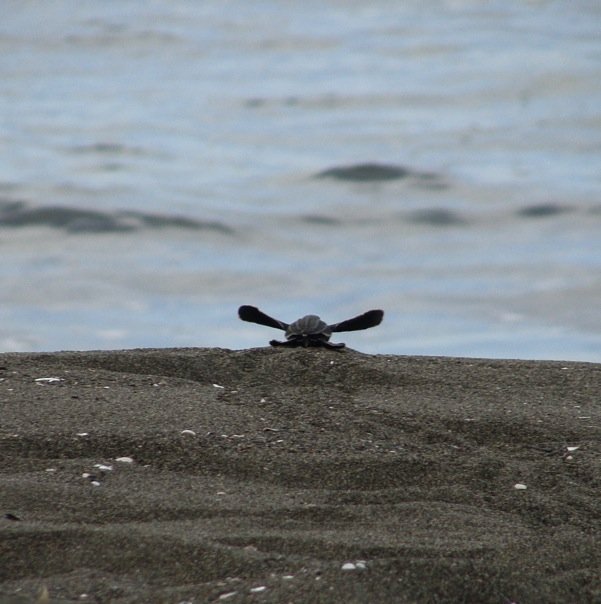
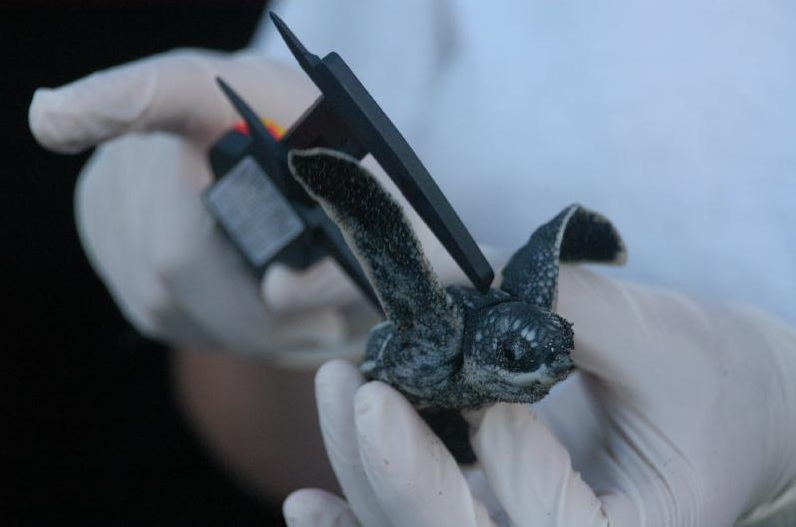
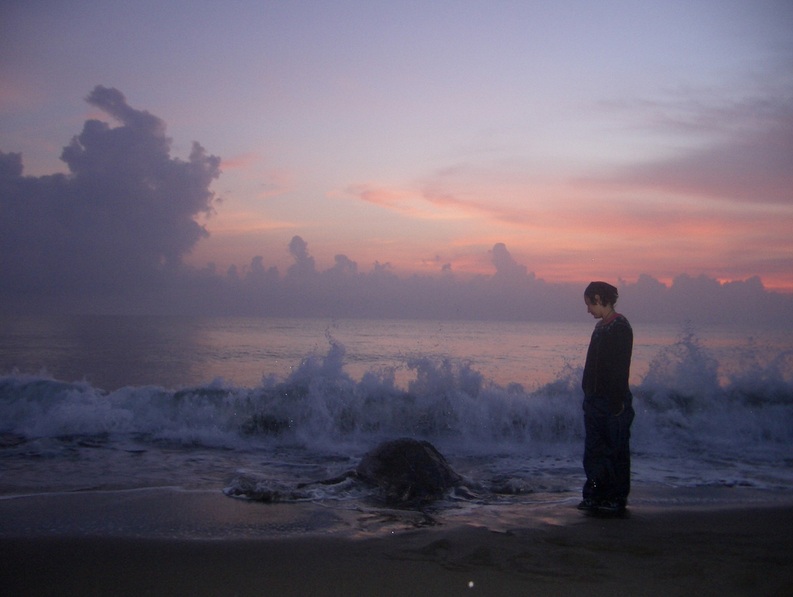
What is Serious
This organization is composed of an expert network of biologists, managers, community leaders and educators. These people are committed to the recovery and sustainable management of sea turtle populations that are dangerously low in number. The project on the Nesting Beaches has been very successful and hundreds of turtle hatchlings are released each year. This is an important accomplishment considering 100% of the eggs would be poached without these efforts. There are many factors to address with respect to turtle conservation, including cultural and economic considerations. The project engages the local community and actually employs ex-poachers to assist with the conservation work. Through their educational efforts and Nesting Beach project this organization has been able to make a significant difference in the region. Your participation ensures that their hard work can continue and that sea turtle hatchlings will safely reach the ocean this season.
What is Fun
You will get to know an amazing group of fellow volunteers and project leaders, while helping sea turtles - one of the most intriguing animals in our oceans.You will be visiting the country’s capital – San José, and then traveling to the Caribbean coast where the project takes place. This area is only accessible by boat through the beautiful Tortuguero canals, and is well off the beaten tourist trail. The area around the project site is tropical rainforest and home to many species of plants and animals. You will enjoy a unique experience where you are fully immersed in nature. Watch for wildlife including sloths, howler monkeys, macaws, toucans, manatees and fresh water dolphins!
The project site offers a lot of free time activities for volunteers. You can rest up for your night time patrol by reading in the hammocks, or keep busy helping around the compound with small projects, like maintaining the beach and the project site. Volunteers can relax by playing volleyball or soccer on the beach, or swimming in the ocean. If you speak a little Spanish you can even help support the local community in their daily duties, like agricultural work.
Dates and Details
This is an ongoing program that runs from March to November each year, during the leatherback turtle nesting and hatching season. Volunteers are taken to the project on Mondays or Thursdays. This means you will need to arrive in San José very early on Monday or Thursday or arrive Sunday or Wednesday and stay overnight in volunteer housing in San José. The cost of the extra night of accommodation is $50 and does not include meals.
Fundraising
Are you thinking of fundraising for a portion, or all your fees? Many of our clients have been very successful with their fundraising efforts. To learn more about their successful fundraising projects and see how you can fund raise for your experience, please visit our fundraising page!
“I had the best time in Costa Rica, I was there for a month and wish I had been there longer. The relationships I built with the research assistants and biologists was awesome! We were a big family. ”
